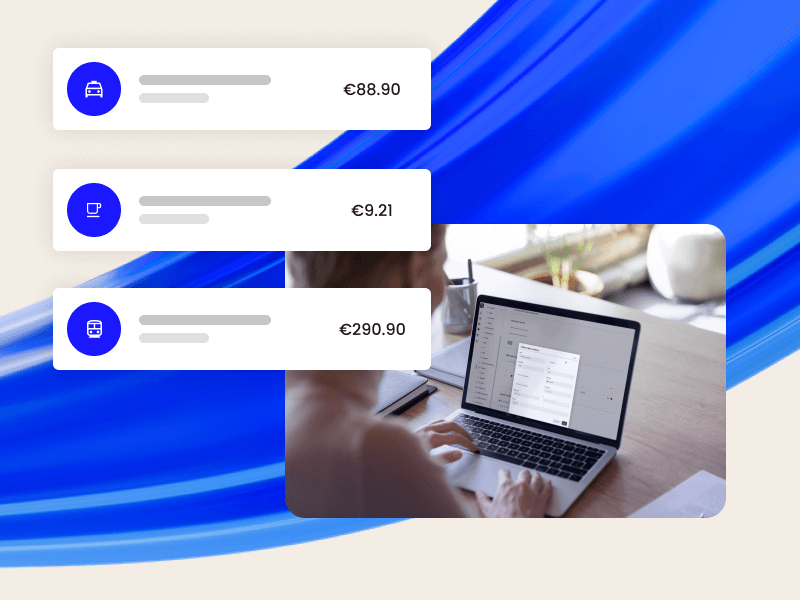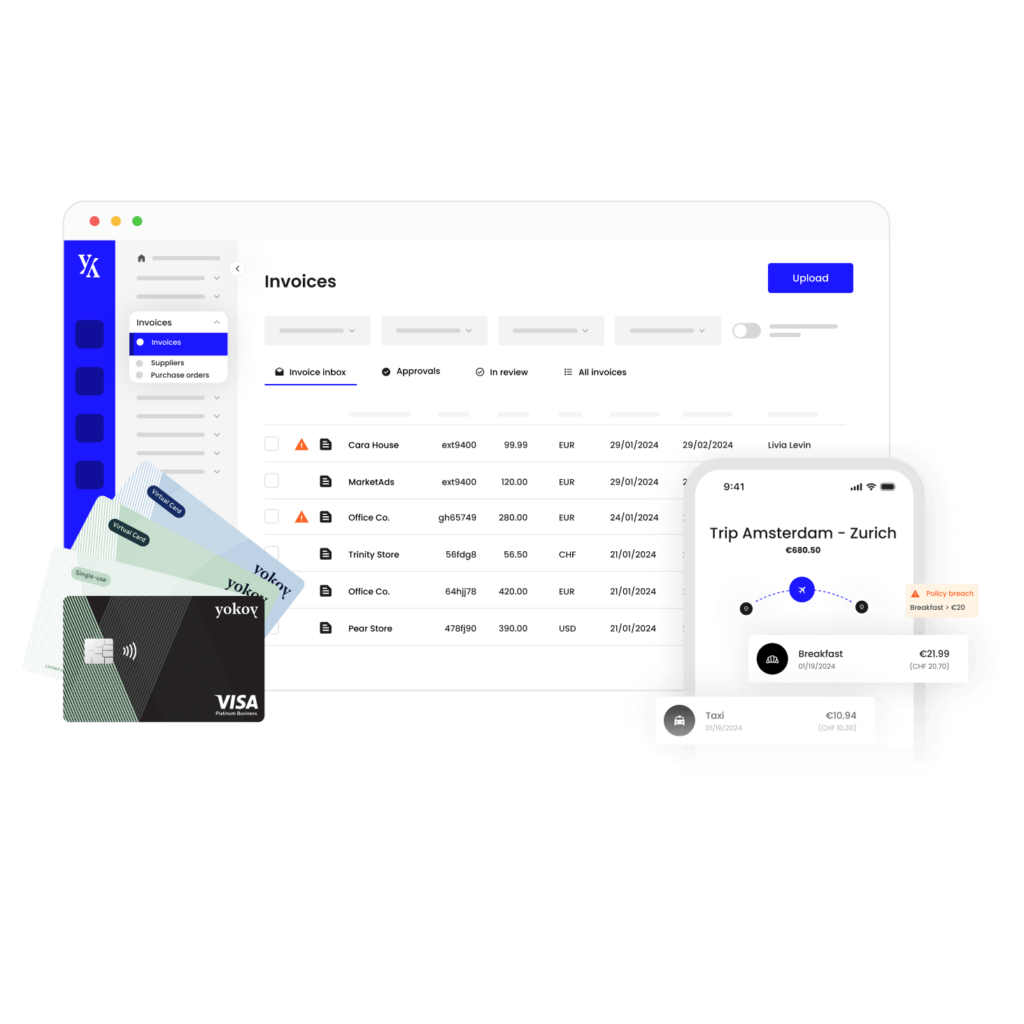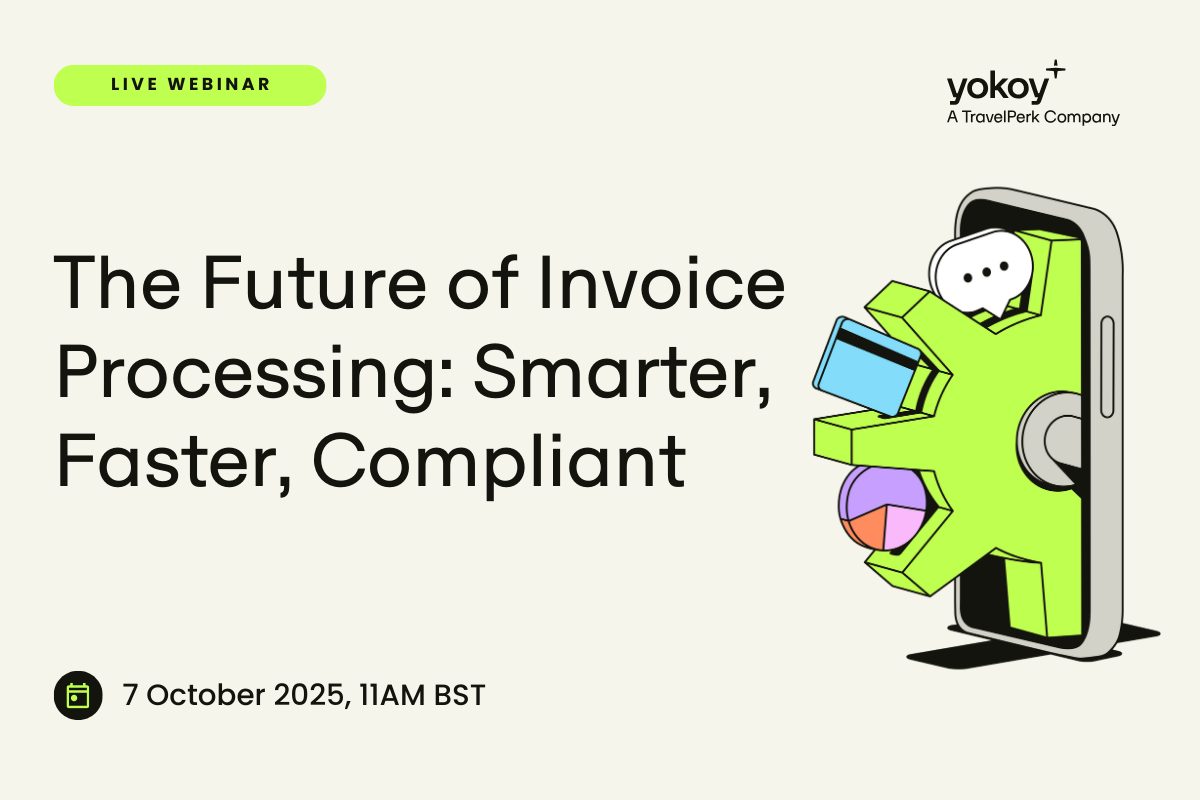Home / Invoice Fraud: How to Detect it and Protect the Business
Invoice Fraud: How to Detect it and Protect the Business
- Last updated:
- Blog

Head of Field & Expansion Marketing, Yokoy
Invoice fraud is a common risk for every business, and you should not underestimate it, as UK Finance’s Annual Fraud Report 2023 shows. In 2022, over £1.2 billion (€1.4 billion) was stolen through fraud, with 40% coming from authorized push payments. Invoice and mandate scam losses totaled a staggering £49.5 million. In the EU, numbers are even higher: In 2022, the European Commission faced €1.77 billion detected and reported cases.
According to findings by International Banker, the majority (95%) of firms are aware of the issue. Still, one in four (25%) finance professionals are unsure about how much it has cost their business. These figures highlight that there is still plenty of room to improve for CFOs, managers, and accounting personnel.
What is invoice fraud?
Accounts Payable (AP) refers to a company’s immediate financial obligations to suppliers and vendors for delivered goods or services. This encompasses vital steps, starting with the verification of incoming invoices. Matching purchase orders and delivery receipts ensures alignment between billed items and received goods. Subsequently, invoices undergo approval from relevant departments or designated personnel. Once approved, the AP department initiates the payment process, concluding the cycle by disbursing funds to fulfill the company’s financial commitments to its suppliers.
Accounts payable vs. accounts receivable
Invoice fraud, often referred to as mandate fraud, involves an imposter assuming the identity of one of your suppliers. The fraudster could notify you of a change in their payment details, providing new account information. What sets this scheme apart is the urgency attached to it, as the fraudster typically insists on swift payment. The repercussions of invoice fraud may only become apparent when the genuine supplier contacts you for payment, leading to potential financial losses, operational disruptions, and strained relationships with legitimate vendors.
And that is not the only type of fraud that perpetrators use to trick you. Luckily, by implementing robust preventive measures, your company can safeguard against deceptive practices. Keep on reading to learn how!
Check out our newsletter
Don't miss out
Join 12’000+ finance professionals and get the latest insights on spend management and the transformation of finance directly in your inbox.
How invoice fraud happens
From sophisticated invoice scams through cyber crime to internal vulnerabilities, invoice fraud can happen in various ways. The following methods might exploit weaknesses in your payment processes, leading to financial losses and operational issues:
Account takeovers through phishing scams
Inflated invoices
Fake invoices
Duplicate invoices
Vendor fraud
Internal or employee fraud
Impersonation
Social engineering
Let us break down the different possibilities to learn more about how invoice fraud happens.
Account takeovers through phishing scams: Fraudsters use phishing emails or messages that seem legitimate, but might trick you into sharing sensitive information like login credentials for your email account or other account details for unauthorized access.
Inflated invoices: By overstating the prices or quantities of goods or services, fraudsters attempt to overcharge and benefit from a business.
Fake invoices: Fabricated, fraudulent invoices aim to deceive businesses into making payments for non-existent or unauthorized services.
Duplicate invoices: Submitting multiple copies of the same invoice exploits loopholes in payment processes.
Vendor Fraud: Arrangements with dishonest suppliers or vendors can lead to fraudulent billing, including overcharging for goods or services or submitting false bills.
Employee Fraud: Team members misuse their access within the organization to manipulate financial systems to unlawfully benefit from the company or do harm to it.
Impersonation: Fraudsters take on false identities to authorize fraudulent transactions, gain access to sensitive information, or deceive employees.
Social engineering: Fraudsters infiltrate email threads or communication channels through hacking or phishing, to intercept internal conversations and trick team members.
Blog article
How to Prevent Expense Fraud with AI-Driven Compliance and Custom Workflows
Expense fraud is a pervasive problem that continues to plague companies of all sizes and industries. In fact, a recent survey by the Association of Certified Fraud Examiners found that organizations lose an estimated 5% of their revenue to fraud each year, with expense reimbursement fraud being one of the most common types of fraud.

Lars Mangelsdorf,
Co-founder and CCO
Invoice fraud prevention explained
Cybersecurity is one measure to keep fraudsters at bay, but there is more that you can do. While many businesses still rely on manual entry, paper-based invoices, and approval workflows, digital approval trails, automated validation, and access controls have proven to be a better way to reduce typical data errors and invoice scams. Streamlining your accounts payable process therefore involves optimizing the way your business handles and manages payments to suppliers or vendors. This streamlining is crucial to enhance efficiency, accuracy, and security while reducing vulnerabilities to potential fraud or errors.
Invoice matching
Automated systems for invoice matching play a pivotal role in cross-checking invoices against related documents like purchase orders, receipts, and contracts. These systems work like digital detectives, comparing every detail on an invoice with other records to spot any inconsistencies or mismatches. For instance, if an invoice claims a higher quantity or different pricing than what was agreed upon in the purchase order or delivery receipt, the system flags it, alerting you about a potential fraud attempt. This automated cross-referencing saves time and significantly reduces the chances of fraudulent invoices slipping through unnoticed.
There are several matching methods when aligning invoices with various supporting documents, intensifying accuracy and fraud detection capabilities:
Two-way matching typically involves comparing invoices with purchase orders
Three-way matching expands this by adding the receipt or delivery confirmation, ensuring that what was ordered was received and invoiced correctly.
Four-way matching includes quality inspection documents and supplier contracts, ensuring that all aspects align perfectly, leaving minimal room for discrepancies.
Each matching method adds layers of validation, progressively enhancing accuracy and reducing the chances of discrepancies or fraudulent activities within the procurement and payment processes.
Review bank statements periodically
Periodically examining statements is like conducting a financial health check for your bank account. It involves looking closely at all transactions to catch any irregularities or unauthorized activities. For instance, if there’s an unexpected or unauthorized payment or withdrawal, reviewing bank statements promptly can reveal these discrepancies. Early detection allows for immediate action, preventing further financial damage and enabling quick resolution, such as freezing compromised accounts or disputing unauthorized transactions.
Be cautious and check invoice details
Scrutinizing invoices with precision is a frontline defense against fraudulent attempts. This involves thoroughly examining every aspect of an invoice, from the itemized details to the billing information. Look out for anomalies such as unfamiliar vendors, unusual billing addresses, discrepancies in quantities or pricing, or inconsistent payment terms. Paying attention to these details helps in spotting irregularities that might indicate fraudulent activity, allowing for timely intervention and prevention.
Create awareness inside the company
Educating employees about the risks associated with invoice fraud empowers the team to recognize warning signs and take preventive measures. Training programs provide insights into common fraud tactics, teach employees how to verify invoices, and encourage reporting any suspicious activities promptly. Those actions help you create a culture of awareness. Everyone in your organization plays a part in combating fraud, so why not foster a vigilant workforce that actively contributes to fraud prevention efforts?
With that being said: Enforcing stringent protocols and checks within the payment workflow is also a proactive approach to combating fraud. This involves setting up clear procedures for invoice approval, verifying vendor authenticity before payments, and implementing multi-level authorization processes for significant transactions. By embedding preventive measures into the workflow, your business can create barriers that deter fraudulent activities, strengthening the overall defense mechanism against fraud attempts.
Next steps: Implement a digital solution
When it comes to navigating the complexities of invoice management, Yokoy offers a powerful suite of digital solutions designed to transform and fortify your accounts payable processes. With Yokoy’s invoice management solutions, your business is equipped perfectly to prevent invoice fraud from happening.
See Yokoy in action
Bring your expenses, supplier invoices, and corporate card payments into one fully integrated platform, powered by AI technology.

Yokoy redefines how you handle your invoices. It’s not just about digitizing paperwork and keeping track of transactions in your bank account; it’s about unlocking efficiency, accuracy, and security within the invoice processing workflow. Through automation, validation checks, and seamless integration, the entire accounts payable process becomes a breeze.
Extract invoice data automatically and set custom approval flows to eliminate mistakes or flag existing errors
Match invoices to purchase orders automatically to ensure compliance and prevent fraud
Increase transparency, avoid duplicate payments, and detect unapproved invoices
Reduce manual tasks like uploading, validating, and approving invoices by using Yokoy’s AI
Get a real-time overview of your invoices and prevent payment delays
Pay suppliers on time by integrating Yokoy with your ERP system to automatically submit invoices
Centralize your invoices in Yokoy’s multi-legal entity setup
Yokoy automatically cross-checks invoices against various documents, such as purchase orders and receipts, ensuring coherence and accuracy in every transaction. Detailed audit trails enable easy tracking of every step within the approval process, eliminating loopholes that fraudsters might exploit. On top of this, role-based access controls and the encrypted platform create a fortified environment, reducing the vulnerability to internal and external fraudulent activities.
Seeing and working with all your invoices and approvals in one central place is essential to avoid invoice fraud. Even more: It ensures an audit-proof invoice management process with automated audit trails when financial reporting is due.
Simplify your invoice management
Book a demoRelated content
If you enjoyed this article, you might find the resources below useful.


